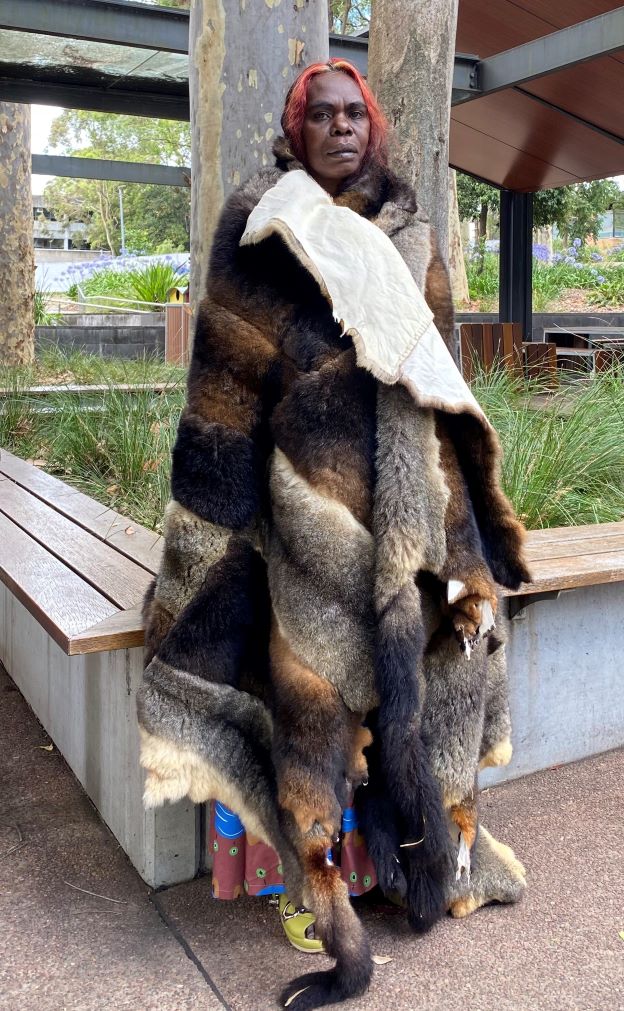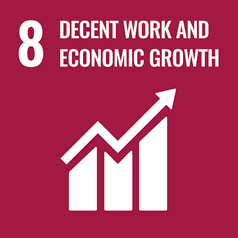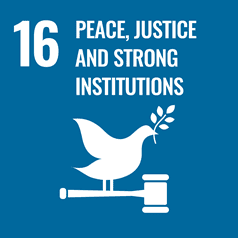Nunggubuyu woman Daphne Daniels honoured at graduation
Activist, community leader and Elder, Dr Daphne Daniels believes in the power of education and research as a first step to drive change in Aboriginal communities.
A Nunggubuyu woman from the community of Ngukurr in Southeast Arnhem Land in the Northern Territory, Dr Daniels was awarded an Honorary Doctorate from the University of Newcastle (UoN) at a 2022 graduation ceremony.
In her acceptance speech, she said that despite working with universities for the last 25 years, this is the first time she has graduated.
“Education is often hard for people living in remote communities. I didn’t finish school and, when I tried to go to university later, it was too difficult to stay away from home. Instead, I had to learn from my job.”
Dr Daniels started her education journey with UoN academic, Associate Professor Kate Senior as a research assistant on the Southeast Arnhem Land Collaborative Research Project.
“My dad pushed me forward to do it and I was scared. But he said, ‘Watch her, she’s the clever one’. By the end of the project, I was the editor of the Ngukurr News, our local community newspaper.”
Since then, Dr Daniels has gone from strength to strength working on many different research projects, written papers and chapters for books as well as teaching university students on country.
Although Dr Daniels' association with the University of Newcastle is relatively new, she has collaborated with Associate Professor Senior, for over 20 years as a guide, mentor, facilitator and co-researcher.
In the communities of Ngukurr and Urapunga, she is the Chair of Strongbala Pipul Wanbala Bois Komiti (Strong People One Voice Committee) which addresses issues related to children, youth and family social and emotional wellbeing.
In Ngukurr, she is the Deputy Chair of Yugul Mangi Development Aboriginal Corporation, a community cultural governance authority, and the Chair of the Family Violence Prevention Working Group.
A history of community-led decision-making
“I, like my uncle and father before me, have a passion for Aboriginal self-determination and community-led decision-making,” Dr Daniels told the crowd of academics, graduates and their friends and families gathered at the graduation ceremony.
“I have also learnt a lot about collaboration and two-way learning.”
She believes that making change in communities is made more powerful by working effectively with other people and this philosophy has been influenced, in part, by her uncle, Dexter Daniels, who travelled to Newcastle from Ngukurr with the Trades Unions to promote the cause of equal pay and landrights for Aboriginal people.
“[He] was the person who suggested to Vincent Lingiari, from Wave Hill Station, that it was time to go on strike for wages and land,” she said.
Although Uncle Dexter was a powerful leader, he had a simple mission education and looked for people with better knowledge and skills to bolster his campaign.
He enlisted the services of novelist, Frank Hardy, to help him organise the Wave Hill Walk-off and raise interest in Australia’s southern states about rights for Aboriginal people.
“Together they were a powerful force and Dexter travelled through Victoria and NSW talking to Trades Unions, workers and university students,” she said.
“It has never been lost on me that people remember Frank Hardy, because he had the power of the written word, but no-one, until now, remembers Dexter Daniels.”
Living Archives
Uncle Dexter’s story and an exploration of the reasons why his story has been largely forgotten, both in his own community and nationally, is now the subject of a UoN research project, From Ngukurr to Newcastle. Exploring the activism, impacts and legacy of Dexter Daniels.
 As part of the project, Daniels and Senior worked with students and staff at the Cook’s Hill Campus to create a major artwork based on Dexter Daniels’ activism and his time in Newcastle.
As part of the project, Daniels and Senior worked with students and staff at the Cook’s Hill Campus to create a major artwork based on Dexter Daniels’ activism and his time in Newcastle.
Indigenous artist Keri Clark and her son, Mitch Mahoney, both experts in the art of making possum skin cloaks, led the workshops.
They used the cloak as a medium to talk about Uncle Dexter and his work and to share their knowledge about all stages of construction of the cloak, from sewing though to creation of the dye and design.
The cloak has been taken to the Ngukurr community and the artists in the community will complete the design.
Possum skin coats are not something that are traditionally made in Ngukurr, but the artists are keen to learn these new skills and see the cloak as a metaphor for Dexter’s own innovations and cross-cultural engagement.
The From Ngukurr to Newcastle project is embedded in a larger project, Indigenous Storytelling and the Living Archive of Aboriginal Knowledge, where Dr Daniels plays a key role in a collaboration between the University of Newcastle, The University of Melbourne and Museums Victoria.
Dr Daniel’s graduation speech finished with a call for graduates to keep social justice firmly in their minds and to remember the power of collaboration.
“When you work with other people, you can be a force for change,” she said. “The buzz word for this is “Collective Impact” but in Ngukurr we call it “Yugul Mangi” (we together as one)."
You can read Dr Daniel’s speech in full here.
Contact
- Jacqueline Wright
- Phone: 02 4921 7408
- Email: jacqui.wright@newcastle.edu.au
Related news
- Post‑mining research comes to life in community art exhibition
- Exciting International Opportunities for Creative Industries Students coming this year
- World-leading MRI upgrade boosts research capability at HMRI Imaging Centre
- New equipment brings cancer's complexity into focus
- Yes, weight-loss drugs work but nutrition needs attention
The University of Newcastle acknowledges the traditional custodians of the lands within our footprint areas: Awabakal, Darkinjung, Biripai, Worimi, Wonnarua, and Eora Nations. We also pay respect to the wisdom of our Elders past and present.



